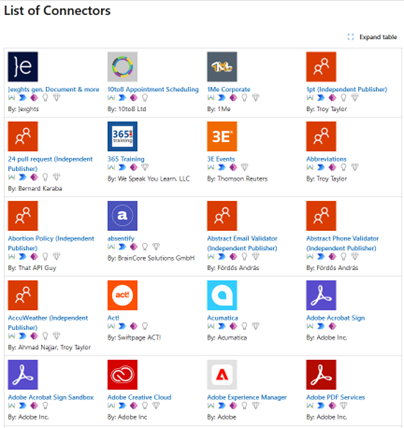Standard connectors and customized connectors
In today's article we're going to look at Power Platform connectors, what they are and the differences between standard connectors and custom connectors.
Connectors are essential for developing any solution with the Power Platform. It is through connectors that we can establish links to data, and carry out operations such as searching for data in a database or writing data to those same databases, as well as integrating or synchronizing data from different sources.
Connectors act as bridges that facilitate communication between the various services on the Power platform, allowing, for example, Power Apps to connect to Power BI, Power Automate to interact with Power Virtual Agents, and so on.
The Power platform supports a wide variety of connectors, including standard connectors for popular services (such as SharePoint, Office 365, Dynamics 365, among others) and custom connectors that can be created to integrate services specific to an organization.
Connectors significantly simplify the integration process, as they eliminate the need for extensive coding to connect different services. Instead of writing code for each integration, users can take advantage of pre-built connectors to quickly establish the necessary connections and facilitate the flow of data between the various components of the Power platform.

In addition to standard connectors, custom connectors can be developed. These are specific, tailor-made connections to meet the particular needs of an organization or integrate specific services that are not covered by standard connectors. They make it possible to extend the integration capacity of the Power platform by connecting to customized systems or services.
Custom connectors are a valuable way of extending the capabilities of the Power platform, ensuring that organizations can integrate their systems in a customized and efficient way. However, it is important to manage these connectors carefully, especially with regard to security and ongoing maintenance.
In what situations does it make sense to consider developing customized connectors?
- When integration with specific services is required;
- When customized development is required;
- When there is a need for flexibility and adaptability;
- When there are personalized security and authentication issues;
- To support new technologies;
- Creating reusable components.

